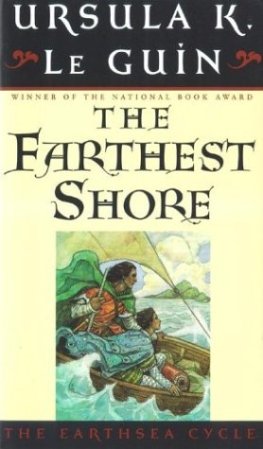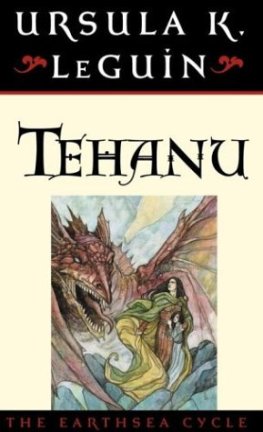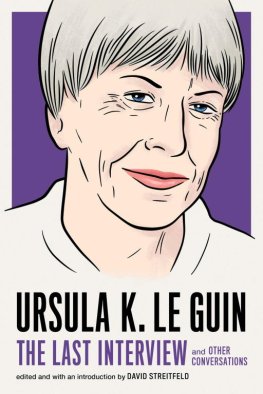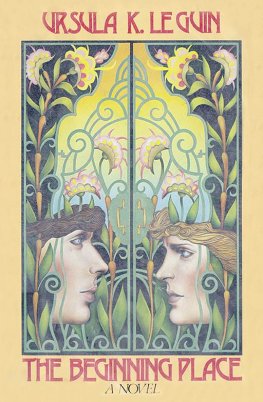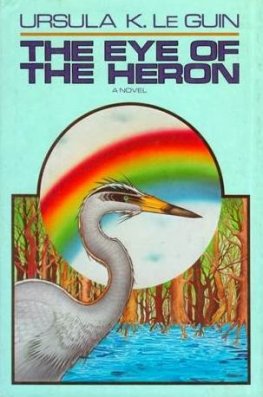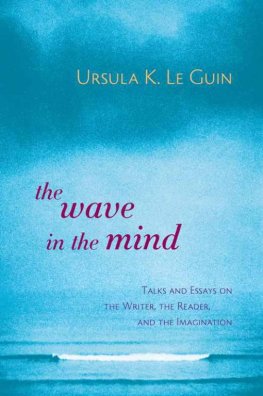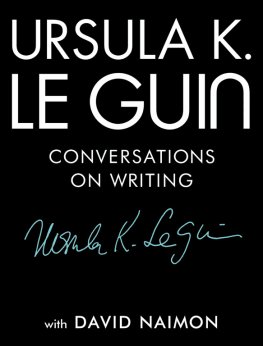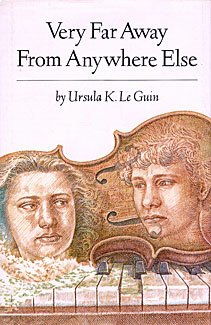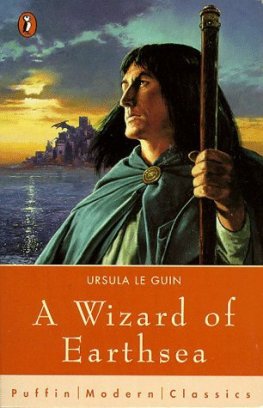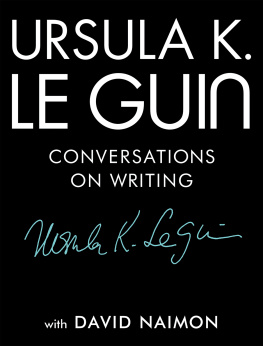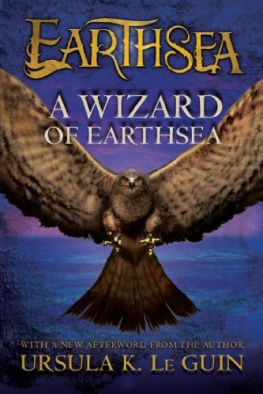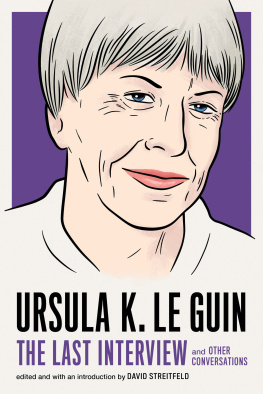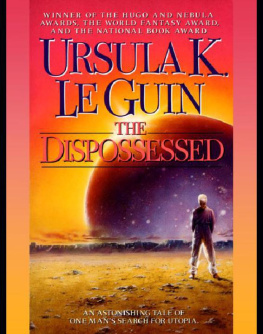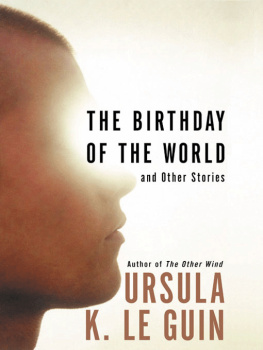Ursula Le Guin - Unchosen Love
Here you can read online Ursula Le Guin - Unchosen Love full text of the book (entire story) in english for free. Download pdf and epub, get meaning, cover and reviews about this ebook. genre: Science fiction. Description of the work, (preface) as well as reviews are available. Best literature library LitArk.com created for fans of good reading and offers a wide selection of genres:
Romance novel
Science fiction
Adventure
Detective
Science
History
Home and family
Prose
Art
Politics
Computer
Non-fiction
Religion
Business
Children
Humor
Choose a favorite category and find really read worthwhile books. Enjoy immersion in the world of imagination, feel the emotions of the characters or learn something new for yourself, make an fascinating discovery.

- Book:Unchosen Love
- Author:
- Genre:
- Rating:4 / 5
- Favourites:Add to favourites
- Your mark:
- 80
- 1
- 2
- 3
- 4
- 5
Unchosen Love: summary, description and annotation
We offer to read an annotation, description, summary or preface (depends on what the author of the book "Unchosen Love" wrote himself). If you haven't found the necessary information about the book — write in the comments, we will try to find it.
Unchosen Love — read online for free the complete book (whole text) full work
Below is the text of the book, divided by pages. System saving the place of the last page read, allows you to conveniently read the book "Unchosen Love" online for free, without having to search again every time where you left off. Put a bookmark, and you can go to the page where you finished reading at any time.
Font size:
Interval:
Bookmark:
Unchosen Love
Ursula K. Le Guin
By Heokadd Arhe of Inanan Farmhold of Tag Village on the Southwest Watershed of the Budran River on Okets on the Planet O.
Sex, for everybody, on every world, is a complicated business, but nobody seems to have complicated marriage quite as much as my people have. To us, of course, it seems simple, and so natural that its foolish to describe it, like trying to describe how we walk, how we breathe. Well, you know, you stand on one leg and move the other one forwardyou let the air come into your lungs and then you let it outyou marry a man and woman from the other moiety
What is a moiety? a Gethenian asked me, and I realised that its easier for me to imagine not knowing which sex Ill be tomorrow morning, like the Gethenian, than to imagine not knowing whether I was a Morning person or an Evening person. So complete, so universal a division of humanityhow can there be a society without it? How do you know who anyone is? How can you give worship without the one to ask and the other to answer, the one to pour and the other to drink? How can you couple indiscriminately without regard to incest? I have to admit that in the unswept, unenlightened basements of my hindbrain I agree with my great-uncle Gambat, who said, Those people from off the world, they all try to stand on one leg. Two legs, two sexes, two moietiesit only makes sense!
A moiety is half a population. We call our two halves the Morning and the Evening. If your mothers a Morning woman, youre a Morning person; and all Morning people are in certain respects your brothers or sisters. You have sex, marry, have children only with Evening people.
When I explained our concept of incest to a fellow student on Hain, she said, shocked, But that means you cant have sex with half the population! And I in turn said, shocked, Do you want sex with half the population?
Moieties are in fact not an uncommon social structure within the Ekumen. I have had comfortable conversations with people from several bipartite societies. One of them, a Nadir Woman of the Umna on Ithsh, nodded and laughed when I told her my great-uncles opinion. But you kiO, she said, you marry on all fours.
Few people from other worlds are willing to believe that our form of marriage works. They prefer to think that we endure it. They forget that human beings, while whining after the simple life, thrive on complexity.
When I marryfor love, for stability, for childrenI marry three people. I am a Morning man: I marry an Evening woman and an Evening man, with both of whom I have a sexual relationship, and a Morning woman, with whom I have no sexual relationship. Her sexual relationships are with the Evening man and the Evening woman. The whole marriage is called a sedoretu. Within it there are four submarriages; the two heterosexual pairs are called Morning and Evening, according to the womans moiety; the male homosexual pair is called the Night marriage, and the female homosexual pair is called the Day.
Brothers and sisters of the four primary people can join the sedoretu, so that the number of people in the marriage sometimes gets to six or seven. The children are variously related as siblings, germanes, and cousins.
Clearly a sedoretu takes some arranging. We spend a lot of our time arranging them. How much of a marriage is founded on love and in which couples the love is strongest, how much of it is founded on convenience, custom, profit, friendship, will depend on regional tradition, personal character, and so on. The complexities are so evident that I am always surprised when an offworlder sees, in the multiple relationship, only the forbidden, the illicit one. How can you be married to three people and never have sex with one of them? they ask.
The question makes me uncomfortable; it seems to assume that sexuality is a force so dominant that it cannot be contained or shaped by any other relationship. Most societies expect a father and daughter, or a brother and sister, to have a nonsexual family relationship, though I gather that in some the incest ban is often violated by people empowered by age and gender to ignore it. Evidently such societies see human beings as divided into two kinds, the fundamental division being power, and they grant one gender superior power. To us, the fundamental division is moiety; gender is a great but secondary difference; and in the search for power no one starts from a position of innate privilege. It certainly leads to our looking at things differently.
The fact is, the people of O admire the simple life as much as anyone else, and we have found our own peculiar way of achieving it. We are conservative, conventional, self-righteous, and dull. We suspect change and resist it blindly. Many houses, farms, and shrines on O have been in the same place and called by the same name for fifty or sixty centuries, some for hundreds of centuries. We have mostly been doing the same things in the same way for longer than that. Evidently, we do things carefully. We honor self-restraint, often to the point of harboring demons, and are fierce in defense of our privacy. We despise the outstanding. The wise among us do not live in solitude on mountain tops; they live in houses on farms, have many relatives, and keep careful accounts. We have no cities, only dispersed villages composed of a group of farmholds and a community center; educational and technological centers are supported by each region. We do without gods and, for a long time now, without wars. The question strangers most often ask us is, In those marriages of yours, do you all go to bed together? and the answer we give is, No.
That is in fact how we tend to answer any question from a stranger. It is amazing that we ever got into the Ekumen. We are near Hainsidereally near, 4.2 light yearsand the Hainish simply kept coming here and talking to us for centuries, until we got used to them and were able to say Yes. The Hainish, of course, are our ancestral race, but the stolid longevity of our customs makes them feel young and rootless and dashing. That is probably why they like us.
Unchosen LoveThere was a hold down near the mouths of the Saduun, built on a rock island that stands up out of the great tidal plain south of where the river meets the sea. The sea used to come in and swirl around the island, but as the Saduun slowly built up its delta over the centuries, only the great tides reached it, and then only the storm tides, and at last the sea never came so far, but lay shining all along the west.
Meruo was never a farmhold; built on rock in a salt marsh, it was a seahold, and lived by fishing. When the sea withdrew, the people dug a channel from the foot of the rock to the tideline. Over the years, as the sea withdrew farther, the channel grew longer and longer, till it was a broad canal three miles long. Up and down it fishing boats and trading ships went to and from the docks of Meruo that sprawled over the rocky base of the island. Right beside the docks and the netyards and the drying and freezing plants began the prairies of saltgrass, where vast flocks of yama and flightless baro grazed. Meruo rented out those pastures to farmholds of Sadahun Village in the coastal hills. None of the flocks belonged to Meruo, whose people looked only to the sea, and farmed only the sea, and never walked if they could sail. More than the fishing, it was the prairies that had made them rich, but they spent their wealth on boats and on digging and dredging the great canal. We throw our money in the sea, they said.
They were known as a stiff-necked lot, holding themselves apart from the village. Meruo was a big hold, often with a hundred people living in it, so they seldom made sedoretu with village people, but married one another. Theyre all germanes at Meruo, the villagers said.
A Morning man from eastern Oket came to stay in Sadahun, studying saltmarsh grazing for his farmhold on the other coast. He chanced to meet a Evening man of Meruo named Suord, in town for a village meeting. The next day, there came Suord again, to see him; and the next day too; and by the fourth night Suord was making love to him, sweeping him off his feet like a storm-wave. The Easterner, whose name was Hadri, was a modest, inexperienced young man to whom the journey and the unfamiliar places and the strangers he met had been a considerable adventure. Now he found one of the strangers wildly in love with him, beseeching him to come out to Meruo and stay there, live thereWell make a sedoretu, Suord said. Theres half a dozen Evening girls. Any, any of the Morning women, Id marry any one of them to keep you. Come out, come out with me, come out onto the Rock! For so the people of Meruo called their hold.
Font size:
Interval:
Bookmark:
Similar books «Unchosen Love»
Look at similar books to Unchosen Love. We have selected literature similar in name and meaning in the hope of providing readers with more options to find new, interesting, not yet read works.
Discussion, reviews of the book Unchosen Love and just readers' own opinions. Leave your comments, write what you think about the work, its meaning or the main characters. Specify what exactly you liked and what you didn't like, and why you think so.

